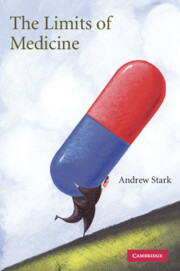Introduction: Reversing Our Lenses
Published online by Cambridge University Press: 08 January 2010
Summary
Imagine that money is no object. Would it be a good thing if medical science developed – and if universal public insurance then paid for – sure-fire cures for blindness or deafness? What about an advanced generation of Prozac that could eradicate neurotic anxiety and mild depression? Or an advanced form of genetic engineering that would furnish every competitive runner with the same peak physical resources? How about a “Michael Jackson pill” that, “if taken by black people,” would “remove all vestiges of being black?” Or new techniques of plastic surgery that would unerringly and permanently provide beautiful skin, lips, and noses? What about a fail-safe drug that cured obesity? Or anorexia? And what if none of these had any side effects?
Notwithstanding the protests of some analysts, who remind us that our financial resources are as limited as our technological hubris is boundless, questions such as these have assumed surpassing prominence in public debate. Despite their futuristic aura, they address an intensely contemporary need to stake out the final limits to medicine, to locate the perimeters beyond which medicine would have no obligation to assist us – indeed, should not assist us – even if it could assist us.
Possibly, we treat these matters with urgency as much because of a sense of moral fallibility as technological hubris.
- Type
- Chapter
- Information
- The Limits of Medicine , pp. 1 - 30Publisher: Cambridge University PressPrint publication year: 2006



